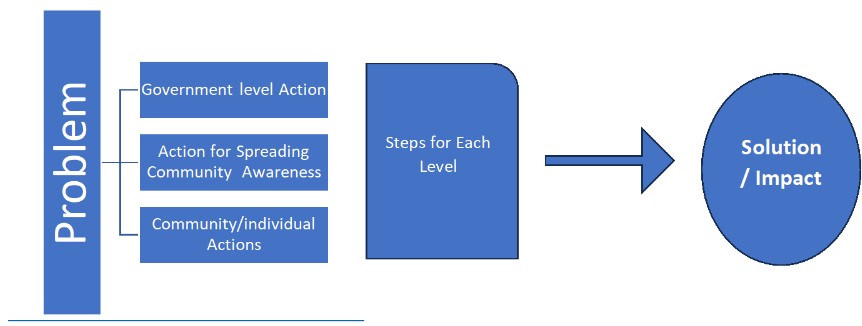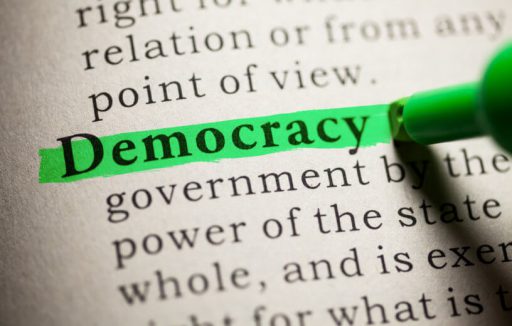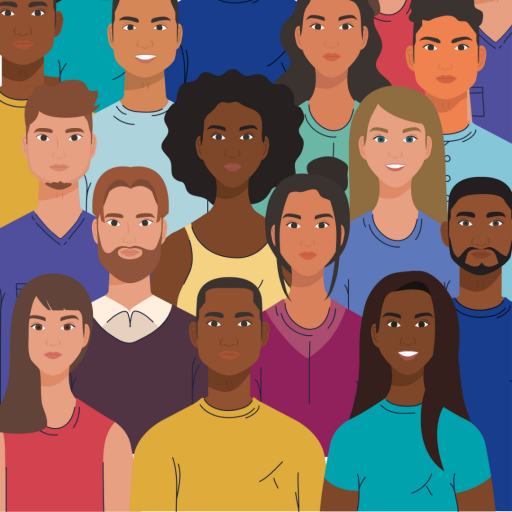October Activity – Address to Redressal
OBJECTIVES
- Students will be able to identify ways citizens can address issues/grievances to government.
- Students will be able to comprehend the Citizen's role in government accountability.
OUTCOMES
1.Students will be able to describe their understanding of the Citizen's role in government accountability.
SKILLS AND VALUES
Skills - Communication, Critical Thinking, Collaboration
Values- Fairness, Empathy
SESSIONS’ OVERVIEW
| S. No. | Session Details | Estimated Time Required |
| 1 | Step 1: Introduction
Step 2: Group Activity Step 3: Debrief of Activity |
45 min |
MATERIAL REQUIRED
Blank sheet/rough paper, pens.
STEPS OF THE ACTIVITY
Session 1: For a 45 min session Step 1-3
Step 1 – Introduction
Time: (5-7 Min)
Teacher will read these headlines:
1. “Citizens RTI for bridge construction expenditure leads to Government facing scrutiny over Corruption Allegations”.
2. “Citizens Rally for Transparency, Holding Government Accountable for taxation matters”.
3. “Government Faces Backlash for Inadequate Service Delivery"
Teacher will then ask the students, what do they observe in these headlines.
Teacher will then tell the students, we have observed that certain actions by citizens leads to corrective actions but sometimes, it may not be the case. In today’s activity we will look at some situations and try to identify ways how can citizens ensure government accountability to address their grievances.
Step 2 – Group Activity
Estimated Time (30 Mins)
1. Divide the class into 4-5 group ensuring 6-8 students in each group. (Situations are given in Annexure 1 – extra situations are also given in case of large class size/more groups.)
2. Explain students about the activity that each group will get one situation and they have to research with help of given handout how they can address the situation to government.
3. Task is to read and understand the scenario and discuss the following questions in group:
a. What does the situation say?
b. How can citizens address their grievances to government?
c. With help of handout – Create a Mind map/diagram to show atleast 3 ways to solve the given issue – Government Level Action & Impact, Community Awareness and Community/Individual level Action & Impact)
Note: Teacher can share the example given in Annexure 3 for clarity.
4. Give 15 minutes of time to class to prepare.
5. Invite each group to present their answers. Each group will have 3-4 mins to present. (Difficult to manage within time)
Note: If time for presentation is not available ask students to display their Answers on Desh Apnayen Wall and everyone can see other groups card in break/recess time.
Step 3 – Debrief
Estimated Time (5-7 Mins)
Ask students the following questions to debrief the activity:
1. Why is it important to hold governments accountable for their actions?
2. What are the different ways of making your governments accountable?
3. After knowing different ways of making the government accountable, can you think of any immediate action that you want to take on any of your daily issues?
Reflection Sheets, Activity Report & Feedback Form
Teachers kindly fill in the feedback form, remind office bearers to fill activity report and remind students also to fill up the reflection sheets.
REFLECTION SHEET (TO BE FILLED BY STUDENTS)
ANNEXURE
Annexure 1 – Situations
· Anita complained to the local authorities by writing a letter regarding the maintenance of the public parks, and within a month action was taken to improve the condition of the parks. But this was only a temporary solution, as after 2 months, it was the same issue.
· There was a continuous disruption of supply of electricity in Saurabh’s colony. The colony members have been calling the department of electricity, but they never answer. This is not the first-time officials are ignoring problems like this. Saurabh decided to visit the office, there was only one person in the whole office, and he asked Saurabh to come again another day because the servers were down. Saurabh visited the office multiple times but got the same response every day.
· Delta is a democratic state. People in the Delta State were coming together to peacefully protest against a new law that was taking away their right to eat food of their choice. The media is working independently and doing great job of telling everyone about the protest, and because of that, a lot of people decided to join the peaceful protest. The protest was going to happen in front of the president house. The representatives then have started taking public view about these laws.
· Geeta and her neighbours were facing problems of stealing and chain-snatching in their colony. Geeta’s phone was snatched, and she immediately filed an FIR. There was no action taken even after multiple reports from same colony. Mr.Shama, her neighbour could not go to the police station physically and lodged an online complaint as she had lost her car few days ago. Geeta again went to the police station, but the officer wasn’t available to tell the status of her FIR. She met Mr. Sharma who told Geeta about online services for FIR. She immediately logged on and sought the information on the police station’s online platform for her FIR. She got an immediate response which showed that the police investigation is going on and they are questioning some of the suspects.
· In ABC country, the government launched an online platform to demonstrate their commitment, called "ABC Budget Tracker." This platform allowed citizens to track and monitor the progress of every government-funded project in real-time. The plan was they could view financial updates, project timelines, and even provide feedback or report any irregularities they noticed. But after launch, for 3-4 months one Mr. Kirit tried almost every other day to log on the page, it was always not available. He also reported the same on social media but none of the officials responded.
· Abhay was a builder, during a government project he placed his tender and hoped to get the same as his company’s performance and records have been really promising. But upon declaration of the bidding results, he found that the tender for the project was given to another builder who was wealthier. Upon inquiry he found that the other builder had given bribes to the government officials. When he raised a concern regarding the same, he was threatened and thrown out of the office.
Annexure 2 – Reference Handout
There are many established ways for citizens to engage with governments—some derived from laws and some directly from communities. There is no one right way to engage; instead, the democratic set-up offers many avenues for citizens to explore how they wish to communicate with the government and each other.
Addressing to Government
Participating online through MyGov.in
· Launched on July 26, 2014, MyGov.in is an online platform of the government that promotes active citizen participation through various consultations, quizzes, polls, surveys, and competitions. · Citizens can directly create their accounts on MyGov.in and engage with the content. · Popular platform for getting governance ideas from citizens.
Public Grievances for Administrative Reforms: Online/Post
The grievances can be sent to:
· The Department of Administrative Reforms and Public Grievances. (pgportal.gov.in)
· The grievances can be lodged online on the portal. In cases where internet facility is not available or even otherwise, the citizen is free to send her/his grievance by Post. There is no prescribed format.
· A unique registration number is given to each grievance. It may be tracked on the pgportal using view status link and after providing unique registration number.
· Every Central Ministry / Department has designated a Joint Secretary or a Director / Deputy Secretary, as its ‘Director of Grievances’. He / She is the nodal officer for redress of grievances on work areas allocated to that Ministry / Department.
· The grievances received in the department are forwarded to the Ministries/Departments concerned. Redressal of grievances is done by respective Ministries/Departments /State/ UT/ NCT Government in a decentralized manner.
· 30 days is the time limit for redress of grievance.
· You can register and lodge Public related grievance on this link: https://pgportal.gov.in/Home/LodgeGrievance
Co-creating laws:
· Various ministries of the Union Government seek public feedback on draft policies, amendments, proposed plans, and ideas. Citizens can communicate their feedback directly to the ministries or make use of platform that enable this consultative process.
· This form of gathering public feedback is encouraged by a 2014 government policy called the Pre-Legislative Consultation Policy, which encourages lawmakers to open a draft of the document for public consultation for a minimum period of 30 days.
· Citizens must participate by writing emails, participating in research surveys, interviews, etc. By participating in the lawmaking process, citizens get a sense of ownership, allowing consensus to be built through dialogue.
Community based Awareness & Actions
Signature Campaigns Participating in movements or demonstrations about issues that affect you or those you feel strongly about can help build solidarity within communities. This can be through peaceful protest rally, signature campaigns – online or offline, etc.
Using your voice
Contributing your thoughts and expressions by writing articles or using social media to express your voice and
starting dialogue on political or governance issues is also an important mode of citizen engagement. Citizens
have many options to voice their thoughts and opinions on governance issues both for online and offline
mode. For example: Writing articles in newspapers, social media, doing street play, etc.
Joining a protest
· Protesting is legal in India and backed by two fundamental rights from the Constitution—the right to
freedom of speech and expression and the right to assemble peacefully without arms.
· It is important to note that protests must be conducted only, if necessary, compliance is met and
conditions are fulfilled (for example, acquiring permissions for loudspeakers and tents).
· It is also important to note that responses from authorities may differ despite full compliance with
the law. In such cases, it is best to have correct information on citizens’ rights and recourses when
deciding to join a protest.
Asking Questions: RTI
· Citizens are guaranteed the right to demand transparency, accountability, and answers from the government in the Right to Information Act, 2005.
· RTI Act has created a structure that allows citizens to ask public officials questions on their working, the departments’ functioning, budgets and projects, to name a few areas. By law, public officials are obliged to answer such questions within a period of 30 days.
· The process of requesting information under this law is very simple and the application can be made either offline or online.
· Online RTI steps and Link: https://rtionline.gov.in/guidelines.php?appeal also to find out more about RTI refer https://rtionline.gov.in/
Volunteering
Volunteering with civil society organisations or clubs for the betterment of one’s community. Small actions such as participating in clean-up drives, garbage segregation, etc.
Annexure 3 – Example
· Rahul wrote a letter to the municipal corporation regarding poor garbage disposal in his area. Despite writing a letter, he did not get any response and the garbage dump has been increasing.


Template:






